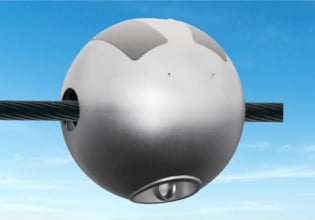Ceres Power, Ltd. announced that it has successfully achieved a significant milestone in the design of its Combined Heat and Power (CHP) product as part of the 2.7 million (pounds) program with Centrica (trading as British Gas). Design work by Ceres engineers has established that the complete CHP system will be sufficiently compact and lightweight to be wall-mountable. This feature is a pre-requisite for installation into the majority of new or existing UK homes as a replacement for standard gas boilers.
Achievement of this system innovation has been enabled by the compact, lightweight 1kW Ceres fuel cell stack, which is the fundamental building block of Ceres' micropower generation products. Under the contract with British Gas, Ceres is designing, building and evaluating fuel cell CHP units capable of delivering electricity, heating and hot water for the home, substantially reducing domestic energy costs and CO(2) emissions. Today's announcement represents the achievement of a major objective under the program, and progresses plans with British Gas to introduce Ceres' fuel cells into UK homes.
As well as size and weight, a key factor for mass-market take-up is production cost. Ceres anticipates an attractive bill of materials cost for the entire system, based on the company's evaluation of key system components including control electronics, air and fuel delivery hardware, in its test facility. By virtue of its technology operating at lower temperatures, Ceres is able to use standard, low cost materials to make its fuel cells.
Peter Bance, CEO of Ceres, commented, "We are very pleased with the rapid progress made in this joint program with British Gas, indicating that our technology is able to meet the requirements of the mass-market. In particular, the fact that our system design is similar in size to conventional wall-mounted boilers is a significant differentiator, making our product highly applicable not just to the UK market, but to other key geographies such as Europe and Japan."






